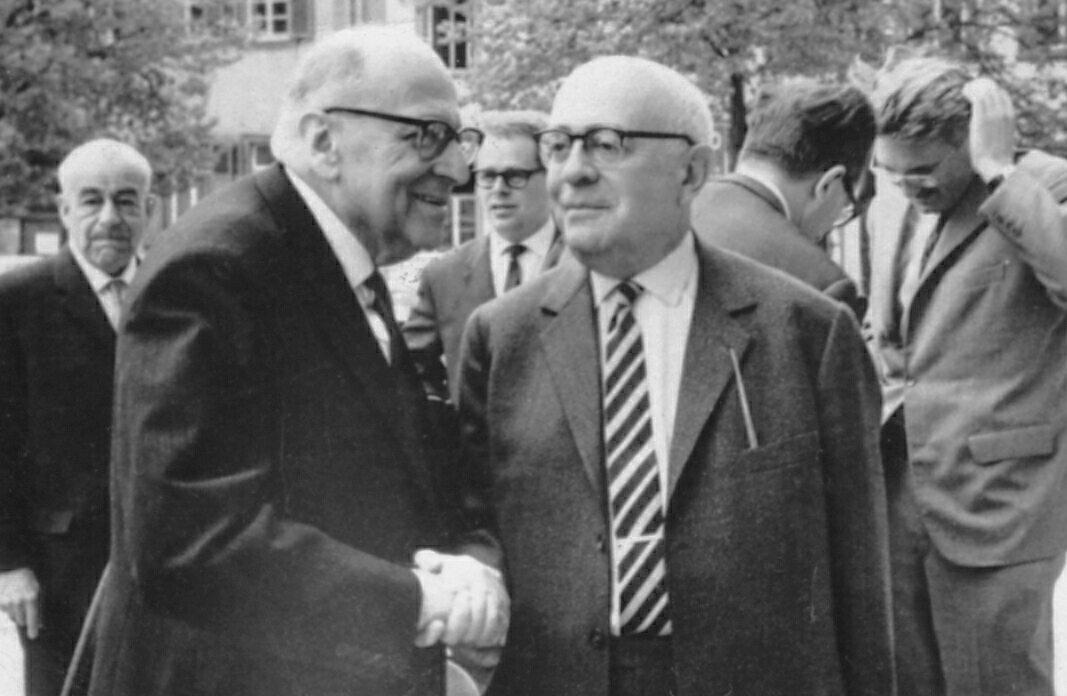“Il giusto amore evita sia la dedizione insana che il dominio.”
Origine: Citato in Dino Basili, L'amore è tutto, Tascabili economici Newton, 1996, p. 12.
Max Horkheimer è stato un filosofo tedesco, tra i più importanti esponenti della Scuola di Francoforte.

“Il giusto amore evita sia la dedizione insana che il dominio.”
Origine: Citato in Dino Basili, L'amore è tutto, Tascabili economici Newton, 1996, p. 12.
Eclisse della ragione
Teoria critica
Origine: Da Zur Kritik der instrumentellen Vernunft; citato in Gino Ditadi, I filosofi e gli animali, vol. 2, Isonomia editrice, Este, 1994, p. 916. ISBN 88-85944-12-4
Origine: Da Rivoluzione o libertà?
Origine: Citato in Lorenzo Guadagnucci, Restiamo animali, Terre di mezzo, Milano, 2012, p. 56. ISBN 978-88-6189-224-8
Origine: Da Taccuini 1950-1969, p.177.
“Il singolo può sì vivere senza preoccupazioni materiali, ma non conta più nulla.”
Origine: Da La società di transizione, traduzione di Giorgio Backhaus, Einaudi.
“L'indifferenza teorica per l'idea è preannuncio del cinismo della pratica.”
Origine: Citato in Focus, n. 96, p. 178.
Origine: Da Lettera a Harold Laski, 10 marzo 1941; citato in Tommaso Giartosio, Perché non possiamo non dirci, Feltrinelli, 2004, p. 158
“La ragione diventa ragione solo quando non è più pura ragione.”
Origine: Citato in Giacomo Maria Arrigo, Max Horkheimer e la catastrofe. Ripensando il totalmente Altro, Lo Sguardo – Rivista di Filosofia, n. 21 (2016), p. 273.
“Chi non ha nulla da dire sul capitalismo deve tacere anche sul fascismo.”
Origine: Citato in Luigi Fenizi, Icaro è caduto [Parabola storica dell'utopia moderna], Bardi Editore, Roma, 2003, p. 346.
“When even the dictators of today appeal to reason, they mean that they possess the most tanks.”
Origine: "The End of Reason" (1941), p. 28.
Contesto: When even the dictators of today appeal to reason, they mean that they possess the most tanks. They were rational enough to build them; others should be rational enough to yield to them.
Origine: "The End of Reason" (1941), p. 34.
Origine: "The Latest Attack on Metaphysics" (1937), p. 137.
Origine: "The Latest Attack on Metaphysics" (1937), p. 162.
John Cumming trans., p. 7.
Dialektik der Aufklärung [Dialectic of Enlightenment] (1944)
Origine: "The Latest Attack on Metaphysics" (1937), p. 148.
Origine: "The End of Reason" (1941), p. 44.
E. Jephcott, trans., p. 17.
Dialektik der Aufklärung [Dialectic of Enlightenment] (1944)
Origine: "The Latest Attack on Metaphysics" (1937), p. 149.
Origine: "The Latest Attack on Metaphysics" (1937), p. 138.
Origine: "The Latest Attack on Metaphysics" (1937), p. 155.
E. Jephcott, trans., p. 9.
Dialektik der Aufklärung [Dialectic of Enlightenment] (1944)
Origine: "The End of Reason" (1941), p. 45.
“Answers determined by the social division of labor become truth as such.”
Origine: Eclipse of Reason (1947), p. 50: Describing the pragmatist view
“Having given up autonomy, reason has become an instrument.”
Origine: Eclipse of Reason (1947), p. 21.
Origine: "The Latest Attack on Metaphysics" (1937), p. 133.